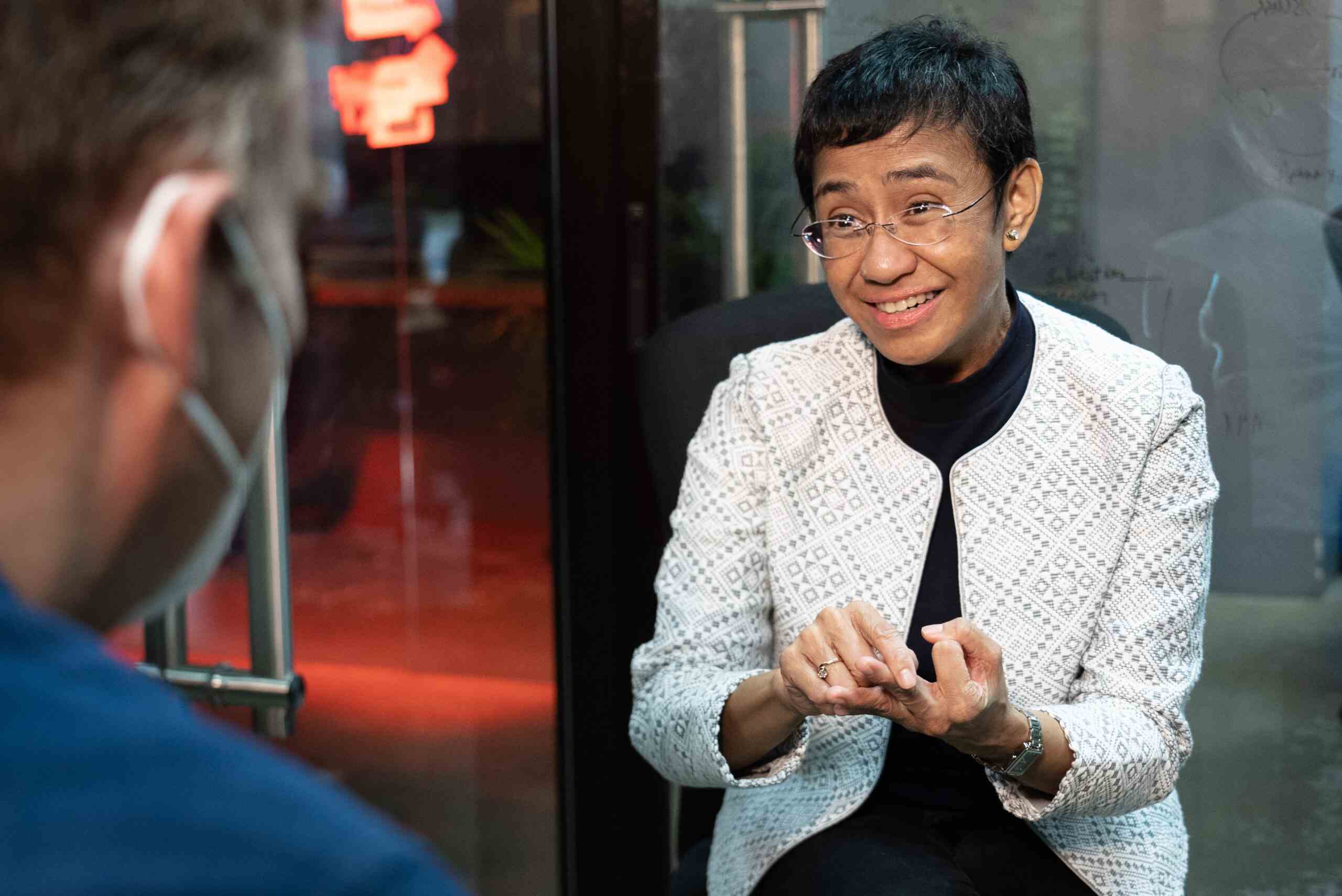interview
Status: 05/12/2022 12:26 p.m
Last but not least, with the help of social media, Marcos, the dictator’s son, won the elections in the Philippines. In an interview, Nobel Peace Prize winner Maria Ressa speaks of a gigantic manipulation and recognizes a “blueprint”.
ARD: The name Marcos stood for dictatorship and human rights violations in the Philippines. 36 years after the fall of the dictatorship, the majority elects a scion of the family as president. How could this happen?
Maria Resa: It is the result of disinformation on an industrial scale. When lies are made into “facts”. Since 2014, social media have been systematically used for this. Stories like: “Marcos’ father was the greatest leader this nation has ever had”, or: “If Marcos Junior wins, the poor get their money back.” This is brilliantly diabolical.
To person
Maria Ressa worked for the TV channel CNN for many 20 years as a correspondent and investigative reporter in the Philippines and Indonesia. She is one of the founders of the news portal “Rappler” and has worked as an author on terrorism in South Asia. In 2021 she was awarded the Nobel Peace Prize.
ARD: How can it be that the crimes of the dictatorship have been forgotten?
Resa: With the help of the social network, memories can be deleted. Russia also uses this method in relation to Crimea and Ukraine: First suppress, then exchange the memory. That’s how it went for us – and it’s only a matter of time before you too are confronted with this effect. Because the networks provide us with the appropriate messages – like Facebook, the largest platform for the dissemination of news, with around three billion users worldwide.
“In the end there is no more reality”
ARD: What consequences does this have for democracy?
Resa: Divide and radicalize the social networks. It’s not about free speech. It’s about what’s being shared the most. We know from studies that lies, anger and hatred spread faster and further. Facts don’t stand a chance. But if you don’t have facts, then you don’t know the truth. Then you can’t trust anyone. In the end there is no longer a common reality. How can you preserve democracy, save the climate, master the Corona crisis? This is what we experienced in the Philippines.
“Existential threat to democracy – worldwide”
ARD: Could this also happen in other countries?
Resa: That’s my biggest concern. This year could be of existential importance for democracy worldwide. There are more than 30 elections around the world. For example in Brazil in October and in the USA in November. What happens when the voters are deliberately influenced and don’t know the facts?
Memories of German history
ARD: What can be done to protect democracy?
Resa: The EU has an action plan with two laws: the Digital Services Act and the Digital Markets Act. This is the most advanced legislation in the world to date. More needs to be done. If you don’t have the facts, then you lose free will. Germany knows that.
“Used like a weapon”
ARD: What are the consequences of this development for your journalistic work?
Resa: I’ve been attacked since 2016. The narrative is: “Journalism is criminal.” Social media is being used like a weapon. In 2019, the Philippine government issued ten arrest warrants against me. If I want to travel abroad, I have to ask for permission. It’s like dying by a thousand single cuts. Made possible by social media.
Does Marcos do it like his father – or better?
ARD: What’s next in the Philippines?
Resa: It is not excluded that Marcos junior will do better than his father, who was in power for more than 20 years. His parents are accused of stealing $10 billion at the time. The government later recovered about three billion. Will a new Marcos government try to do the same? That will be interesting! There is also a holiday here to commemorate the popular uprising – will it be reinterpreted now? He has lawsuits, didn’t pay taxes. I invited Marcos junior to an interview with “Rappler”.
“Hopefully the rule of law will survive”
ARD: Are you and your colleagues at “Rappler” in danger?
Resa: We’ve been in danger for the last six years. But we say to ourselves: The mission of journalism is more important today than ever. We just hope for the best. I could go to prison for the rest of my life. These charges against me should never have been tried. I am fighting this in court. Hopefully the rule of law will survive.
The interview was conducted by Ulrich Mendgen from the ARD studio in Tokyo

